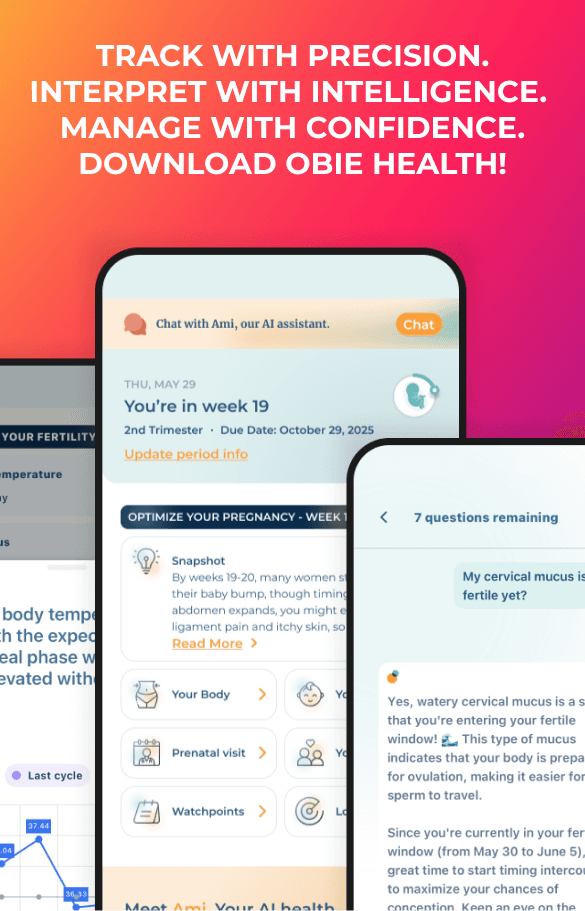Postpartum Hemorrhoids
Postpartum
Obie Editorial Team

Hemorrhoids are swollen and sometimes inflamed blood vessels/veins in your anus and lower rectum. As many as half of all pregnant women get hemorrhoids during pregnancy, particularly during the third trimester. If you have had hemorrhoids prior to getting pregnant, you are more likely to develop them during pregnancy. Similarly, if you’ve had hemorrhoids during pregnancy, you are more likely to develop hemorrhoids after your pregnancy.
Causes of postpartum hemorrhoids
Hemorrhoids are bulging and swollen veins in the rectum. They can be internal hemorrhoids that are located inside the lower intestine or they can be external hemorrhoids, where they protrude out from the anus.
During pregnancy, an enlarged uterus puts pressure on these veins. Add the extra weight you are carrying, along with constipation and the straining and pushing you had during labor, and you might see yourself with a case of postpartum hemorrhoids.
Symptoms of postpartum hemorrhoids
The most common symptoms of hemorrhoids are discomfort, itching, bleeding, and pain. You may notice streaks of blood on the toilet paper after using the bathroom. Bleeding hemorrhoids may seep mucus that can leave your skin irritated. If your hemorrhoids are internal, it not unusual to see blood on your stool. In some cases, you may feel a lump near your anus as a result of hemorrhoids.
Treatment of postpartum hemorrhoids
Fortunately, there are a number of things you can do to get relief from postpartum hemorrhoids:
- Place an ice pack to your hemorrhoidal area a few times a day. Ice is helpful to reduce your discomfort and decrease the swelling of your hemorrhoids.
- Use a witch hazel cold compress.
- Soak your bottom in a warm sitz or tub bath.
- Use premoistened wipes after each bowel movement instead of dry toilet paper. It is important to keep your rectum and anal area clean if you have postpartum hemorrhoids.
- Drink plenty of water and eat foods, like fruits and vegetables, that are high in fiber. Doing so will help reduce constipation.
- Speak to your healthcare provider about recommending a topical hemorrhoid-relief ointment or medicated suppository.











